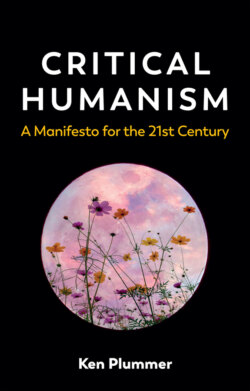Читать книгу Critical Humanism - Ken Plummer - Страница 26
Humanism as rights
ОглавлениеMuch humanism has developed ideas around the rights of human beings. In modern times, these are embodied in purest form in the Universal Declaration of Human Rights (UDHR; originating in Paris at the United Nations General Assembly meeting in December 1948).46 The document asserts:
recognition of the inherent dignity and of the equal and inalienable rights of all members of the human family is the foundation of freedom, justice and peace in the world … [D]isregard and contempt for human rights have resulted in barbarous acts which have outraged the conscience of mankind, and the advent of a world in which human beings shall enjoy freedom of speech and belief and freedom from fear and want has been proclaimed as the highest aspiration of the common people.
Here, core notions of equality, justice, freedom, peace, dignity and rights are all brought centre stage in a document that haunts all major contemporary humanist thought and writing. In one clear sense, this movement for ‘rights’ can be seen as a tremendous success; it has established a universal language that has gradually moved across the world over the past half century. And there is much evidence of a sort of success: a ‘justice cascade’.47 The world has become infused with a human rights culture, some even claiming that it has radically changed the nature of our human world. With the idea of rights, humanity has been given a major common language, an equality of dignity for all. And it has provided a strategy for political change that has already had far-reaching consequences for the lives of many peoples all around the world.48 Given that the document was only introduced seventy years ago, it has achieved much, and for a wide variety of groups. Box 1.2 suggests a little of this.
Despite considerable achievements in a very short period of time, human rights are under attack from many directions. First, some major countries (including Russia and China) have in practice shown little interest or regard for human rights (they also take little interest in the United Nations or use it for their own ends). Most recently, the USA, under President Donald Trump, stopped using the language of rights; Trump publicly expressed his dislike of the UN on a number of occasions, even withdrawing from the World Health Organization (WHO). But there have also been many schisms and factions within the UN, leading to blocks of voting against rights. For example, although there has been considerable action for women’s world rights, there have also been alliances between Catholic and Muslim countries to prevent advances on certain issues (like health and reproductive rights). Likewise, gay and lesbian issues are on the agenda, as are protocols from the Yogyakarta Principles; but religious alliance (between Muslims and Christians) have again prevented any advance in this area.
Many academics have also highlighted human rights failures. Samuel Moyn claims that human rights campaigns have deflected attention from world inequalities; Philip Cunliffe suggests they have led to a cosmopolitan dystopia; and Stephen Hopgood suggests: ‘We are on the verge of the imminent decay of the Global Human Rights Regime.’51 But most seriously, human rights are seen as a Western invention, another form of colonialism, forcing many countries once more to fall in line with Western ideals. This means that, for example, although the struggles faced by non-Western women are different from those of Western women, they are being colonized by Western rights feminism. Likewise, the Western way of being gay, lesbian and queer is being universalized. Specific cultural differences and problems of being a woman or gay become undermined as the world is shaped by the ideals of Western feminists and queers. In addition, indigenous peoples have not, until very recently, been recognized as having rights.52
